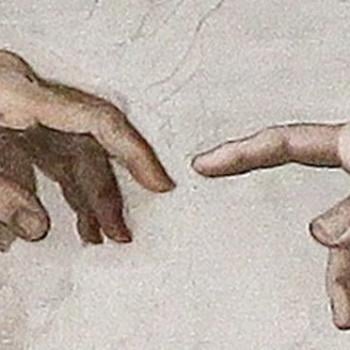It doesn't take long for people to discover that Evangelicals have a passion for truth. In fact, we are often so adamant about it that we capitalize it to make sure there are no misunderstandings. Evangelicals stand for the "Truth" of Christianity. But sadly, in our zeal to present and defend the truths of our faith, we frequently run roughshod over those with whom we disagree. Our orthodoxy is connected to a confrontational form of orthopathy.
Evangelicals talk frequently about orthodoxy. This is defined as a sound or correct set of doctrines, usually with an emphasis on a core set of beliefs with more freedom for disagreement on less central issues. Related to this is the concept of orthopraxy. This refers to right practices and behaviors, from the various rituals we perform to the ethical standards we live out. Orthodoxy and orthopraxy are very important to Evangelicals, but further attention is needed for the form of orthopathy we exercise from which these other elements are birthed.
Orthopathy comes form the Greek word pathos. Used in a theological context, it refers to the right forms of passions, emotions, and empathies. This is the emotional and attitudinal dimension of our faith. It is my contention that in our concern for orthodoxy and orthopraxy, we end up neglecting, even violating a balanced biblical form of orthopathy, an element just as vital to the right standards of faith as the other elements we tend to emphasize as Evangelicals.
A few examples illustrate how our present form of orthopathy expresses itself in concert with our orthodoxy.
Years ago I used to love listening to the late Walter Martin as he took on any number of Mormons, Jehovah's Witnesses, or members of other groups that Evangelicals would consider heretical sects. Richard Mouw recounts one such episode where Martin was speaking in a church and during the question-and-answer period a brave young Mormon did his best to respond to concerns he had about Martin's representation of his faith. The interaction developed into a heated exchange, and despite the best efforts of the Mormon to clarify his beliefs and his commitment to Jesus as he understood him, Martin talked beyond him to the Evangelical audience and said, "See how they love to distort the meanings of words." The frustrations on the part of the Mormon grew, and as he walked away from the encounter he said, "You're not even trying to understand."
Martin was concerned about orthodox Christian doctrine, and wanted to ensure that his Evangelical audience understood how this contrasted with the teachings of Mormonism. He also wanted to communicate this to the young Mormon, but in the process a confrontational orthopathy communicated a stern orthodoxy aimed at shoring up Evangelical boundaries and concerns for heresy.
Another example is found in our post-9/11 environment. As a result of the attacks on New York and Washington, D.C., Evangelicals have been all too eager to assume a monolithic form of Islam, and to equate Muslim terrorists with "true Islam" and what it means to be a "true Muslim." As a result, we have been all too eager to disseminate the rhetoric of right wing anti-Islam organizations, and we have been conspicuously absent from work for religious freedoms for all, including Muslims, and in speaking out against the vandalism on various mosques in the United States. Here again, our understandable concerns for the violence found in some expressions of Islam, and our desires for the message of Christianity to be understood in contrast with that of Islam, has been compromised by a hostile and confrontational form of orthopathy. In effect, we have engaged in a form of doctrine over person, where our concerns for doctrinal truth has resulted in confrontational means of interaction with others and seemingly trumped our compassion for others with whom we may disagree.
If we pause for a moment and reflect on biblical teaching, we will discover what we need to address this situation. The Bible certainly includes concerns for sound teaching. It also touches on the attitudes associated with that. On that many Evangelicals are agreed. But what form of orthopathy should we exhibit? That too is a major biblical concern.
Consider Jesus' recognition that love for neighbor is one of the greatest commandments of the law (Mk. 12:28-31). In answering the question, "Who is my neighbor?," Jesus told the parable of the Good Samaritan (Lk. 10: 25-37). Although Evangelicals know this story well, our familiarity with it means that we can easily miss important lessons that it yet has to teach. As Amos Yong says in his book Hospitality and the Other in exploring the implications of the parable for interreligious encounters:




